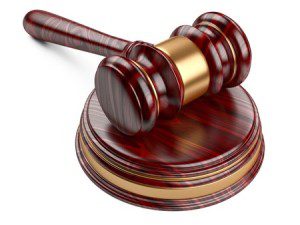 The same principle is at the core of State v. Weleck, another pre-Code case. There, the defendant, a borough attorney, was charged with extorting payments from a citizen in return for agreeing to use his influence to secure the passage of a favorable zoning amendment. Once again, the Court held that some duties are inherent in the office of a public attorney. Those duties – to render uncorrupted legal advice and refrain from extortion in return for rendering that advice – are inseparable from properly performing the tasks of the office. See, e.g., State v. Green, 376 A.2d 424, 428 (Del. Super. Ct. 1977) (“The phrase ‘a duty which is clearly inherent in the nature of his office’ means those unspecified duties that are so essential to the accomplishment of the purposes for which the office was created that they are clearly inherent in the nature of the office.”) (quoting Del. Code Ann. tit. 11, § 1211(2)). Neither Deegan nor Weleck support the State’s position that defendant’s official duties included a non-discretionary duty, while at home on vacation, to notify police of Prontnicki’s whereabouts. It is only “unlawful behavior in relation to official duties” that give rise to the charge of official misconduct.
The same principle is at the core of State v. Weleck, another pre-Code case. There, the defendant, a borough attorney, was charged with extorting payments from a citizen in return for agreeing to use his influence to secure the passage of a favorable zoning amendment. Once again, the Court held that some duties are inherent in the office of a public attorney. Those duties – to render uncorrupted legal advice and refrain from extortion in return for rendering that advice – are inseparable from properly performing the tasks of the office. See, e.g., State v. Green, 376 A.2d 424, 428 (Del. Super. Ct. 1977) (“The phrase ‘a duty which is clearly inherent in the nature of his office’ means those unspecified duties that are so essential to the accomplishment of the purposes for which the office was created that they are clearly inherent in the nature of the office.”) (quoting Del. Code Ann. tit. 11, § 1211(2)). Neither Deegan nor Weleck support the State’s position that defendant’s official duties included a non-discretionary duty, while at home on vacation, to notify police of Prontnicki’s whereabouts. It is only “unlawful behavior in relation to official duties” that give rise to the charge of official misconduct.
Note that the Appellate panel’s citation to a Delaware case is not binding authority. It will be interesting to see the New Jersey Supreme Court’s analysis of the issue if the Somerset County Prosecutor’s Office chooses to appeal. The interesting dynamic of the case is that a trial judge, appellate panel, and likely the New Jersey Supreme Court will all be called upon to address the criminal laws that apply to their own behavior as judges.
In Sheridan v. Sheridan, while recognizing the absence of any controlling court rule or administrative directive, the Family Part observed that most judges report “illegal or improper activities because it is the right thing to do and because it is repugnant to their oath that judges sit mute in the face of acknowledged, demonstrated or potential wrongdoing.” Notably, in Sheridan, the judge became aware of criminal wrongdoing during sworn testimony in a case over which he was presiding, i.e., while the judge was performing an official duty. More importantly, Sheridan was firmly rooted in a judge’s ethical responsibilities, and the court never suggested that the judge’s failure to make such a report would subject him or her to criminal culpability.
